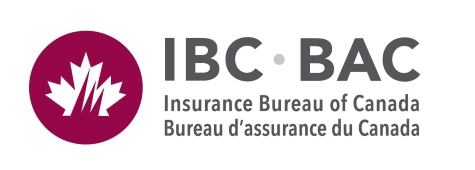MONCTON, Oct. 16, 2012 /CNW/ - Insurance Bureau of Canada (IBC) and Atlantic Collaborative on Injury Prevention (ACIP) have created a program to support community-based injury prevention programs throughout Atlantic Canada and the evidence suggests it's working.
According to ACIP, the economic costs of injury exceed $1.3 billion annually in Atlantic Canada. IBC and ACIP believe that number must change. This vital partnership will provide the support needed to community groups and organizations throughout the region to make significant strides to reduce injury across Atlantic Canada and create better and safer neighbourhoods for everyone.
"IBC believes in building strong communities and is committed to working with like-minded partners to ensure our region is healthy and our neighbours are safe," says Bill Adams, Vice President, Atlantic. "Our partnership with ACIP and the programs of its provincially-based members is a major step forward in helping prevent and reduce the instances and impact of injuries in Atlantic Canada," adds Adams.
IBC's funding for this partnership, now in its second year, will total $120,000 by year's end. The grants are divided equally among the Atlantic Provinces. In 2011 and again in 2012, an injury prevention organization in each province received a $15,000 grant in support of their programming that addresses the injury challenges facing their respective communities. IBC and ACIP believe this money is a vital investment in the health of Atlantic Canadians and our communities.
The grants have and will continue to assist the provincial organizations to expand and enhance existing programs and develop new initiatives. Focus changes by province, with the organizations tackling road, rail and water safety, impaired driving ( including the prevention of distracted driving), helmet use and brain injury awareness among other issues.
"Support from IBC and ACIP is tremendous. IBC's support has significantly helped Child Safety Link promote our new website and helmet safety information to both families and our partners across Nova Scotia," says Sandra Newton, Manager, Child Safety Link.
"IBC's contribution has made it possible for Safety Services New Brunswick− in partnership with the NB Trauma Program− to deliver P.A.R.T.Y. (Prevention of Alcohol and Risk Related Trauma in Youth)," added Safety Services NB President, Bill Walker. P.A.R.T.Y. is a program designed to educate students about the consequences of risk and injury and is one of the few evidence-based injury prevention resources available for teenagers.
IBC funding has also allowed the Island Network for Injury Prevention in Prince Edward Island to carry on its work promoting safe car seat use and helmet safety. Similarly the Newfoundland and Labrador Injury Prevention Coalition (NLIPC) received financial support from IBC to continue working on water safety, driver education for seniors, child passenger safety, helmet education and promotion for summer and winter sports and recreation activities.
"IBC has enabled the NLIPC to partner with our member organizations to enhance our messages for injury prevention throughout the province of Newfoundland and Labrador," says Jeannette Holman−Price, Chair, Newfoundland and Labrador Injury Prevention Coalition.
About Insurance Bureau of Canada
Insurance Bureau of Canada is the national industry association representing Canada's private home, car and business insurers. Its member companies represent 90% of the property and casualty (P&C) insurance market in Canada. The P&C insurance industry employs over 114,000 Canadians, pays more than $7 billion in taxes to the federal, provincial and municipal governments, and has a total premium base of $40 billion.
To view media releases and information, visit the media section of IBC's website at www.ibc.ca and for IBC on Twitter follow @BeSmartBeSafe and @insurancebureau.
SOURCE: INSURANCE BUREAU OF CANADA
or to schedule an interview, contact:
Helen Lialias
Media Relations Officer
Insurance Bureau of Canada
416-362-2031 ext. 4312
[email protected]

Share this article